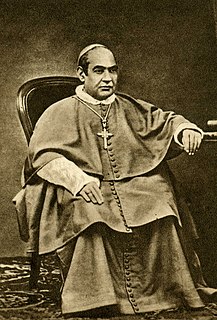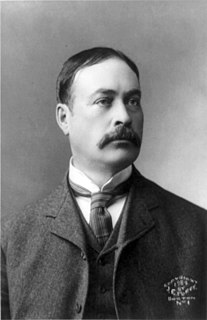A Quote by Robert Graves
No honest theologian therefore can deny that his acceptance of Jesus as Christ logically binds every Christian to a belief in reincarnation - in Elias case (who was later John the Baptist) at least.
Related Quotes
It’s all right,” she said. “You’re through.” “Jesus,” he finally managed, pushing water off his face. “Jesus Christ and John the Baptist. For that matter, Matthew, Mark, Luke, John.” Still not enough. He needed to reach back to the Old Testament for this. “Obadiah. Nebuchadnezzar. Methuselah and Job.” “Be calm,” she said, taking him by the shoulders. “Be calm. And there are women in the Bible, you know.” “Yes. As I recall it, they were trouble, every last one.
The Christian who desires to follow Jesus carrying his cross must bear in mind that the name "Christian" means "learner or imitator of Christ" and that if he wishes to bear that noble title worthily he must above all do as Christ charges us in the Gospel: We must oppose or deny ourselves, take up the cross, and follow him.
The essence of Christianity is centered upon the Lord Jesus Christ. The sum and substance of being a Christian is trusting Christ with the entirety of one's being. The height of the Christian life is adoring Christ, the depth of it loving Him, the breadth of it obeying Him, and the length of it following Him. Everything in the Christian life revolves around Jesus Christ. Simply put, Christianity is Christ.
The belief in God is not therefore based on the perception of design in nature. Belief in design in nature is based upon the belief in God. Things are as they are whether there is a God or not. Logically, to believe in design one must start with God. He, or it, is not a conclusion but a datum. You may begin by assuming a creator, and then say he did this or that; but you cannot logically say that because certain things exist, therefore there is a God who made them. God is an assumption, not a conclusion. And it is an assumption that explains nothing.
So I came to my Christian faith later in life, and it was because the precepts of Jesus Christ spoke to me in terms of the kind of life that I would want to lead. Jesus Christ dying for my sins spoke to the humility we all have to have as human beings, that we're sinful and we're flawed and we make mistakes, and that we achieve salvation through the grace of God.
The marker of those who understand the gospel of Jesus Christ is that, when they stumble and fall, when they screw up, they run to God and not from him, because they clearly understand that their acceptance before God is not predicated upon their behavior but on the righteous life of Jesus Christ and his sacrificial death.
the Twelve Apostles are the most evident sign of Jesus' will regarding the existence and mission of his Church, the guarantee that between Christ and the Church there is no opposition: despite the sins of the people who make up the Church, they are inseparable. Therefore, a slogan that was popular some years back, 'Jesus yes, Church no,' is totally inconceivable with the intention of Christ. This individualistically chosen Jesus is an imaginary Jesus.
They are equal reality. They are two streams of present reality, both equally promised. The Christian dead are already with Christ now, and Christ really lives in the Christian. Christ lives in me. The Christ who was crucified, the Christ whose work is finished, the Christ who is glorified now, has promised (John 15) to bring forth fruit in the Christian, just as the sap of the vine brings forth the fruit in the branch.
But Jesus wanted the crowd to know, look, 'John's (the baptist) the one who got this whole thing started.' In verse ten He says, 'This is the one about whom it is written, 'I'll send my messenger ahead of you who will prepare Your way before You.' Jesus says, 'If it wasn't for John, I wouldn't even be here performing these miracles.'







































